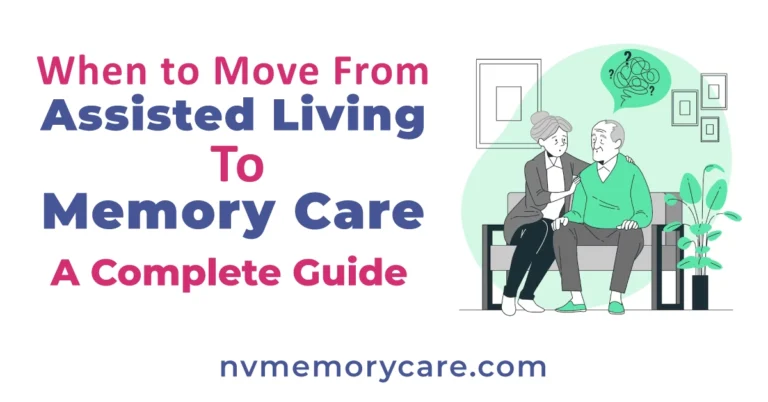Receiving an Alzheimer’s diagnosis can be devastating for both seniors and their loved ones. And while the news itself can be overwhelming, getting the right diagnosis is also the first step in receiving the right care. From therapies to medications, new and innovative treatments are being developed all the time to improve the quality of life of those living with memory impairment.
Understanding the disease and getting the right treatment as soon as possible is the best way to ensure that patients lead the best lives possible.
Stages of Dementia
Dementia is the general term used to describe memory loss and the deterioration of cognitive abilities, and Alzheimer’s disease is the most common cause of dementia among older adults. In America, 1 in 9 adults over the age of 64 has the disease and that number rises to 1 in 3 once adults reach age 85. Alzheimer’s is a progressive disease where the symptoms develop slowly and gradually get worse over time, eventually becoming severe enough to interfere with common everyday tasks.
Medical professionals often discuss dementia in stages. These stages refer to how far dementia has progressed and which symptoms one can expect to experience. Having these clearly defined stages helps caregivers understand where their loved one stands with the disease and allows them to better determine the right course of treatment.
Generally, dementia is defined in three stages – early, middle, and late.
Early Stages
Patients in the early stages of dementia have difficulty concentrating, trouble remembering recent events or recently learned information, may have trouble managing their finances, and find it hard to travel alone to new places. Patients will also begin having a hard time socializing and may become withdrawn or refrain from doing activities they once enjoyed. Despite some of the symptoms still being mild, a physician will be able to diagnose dementia in the early stages.
Middle Stages
Patients in the middle stages of dementia will start having major memory lapses. In addition to forgetting recent events, people in this stage will often begin to forget vital pieces of information like their home address, their phones number, and even the names of close friends and family. At this point, many patients will need some help completing daily living activities such as preparing meals, dressing, and bathing. As patients reach the late-middle stages their ability to speak declines and incontinence often becomes a problem. Noticeable personality changes and emotional problems are also common as many patients become anxious and agitated and may even experience delusions.
Late Stages
As patients enter the late stages of dementia, they often lose the ability to speak and communicate. These patients will require help with even the most basic activities like eating and using the bathroom. They also often lose their psychomotor skills like the ability to walk.
Depending on the stage of dementia, the course of treatment for each patient will vary.
Managing Dementia
The amount of care that a person with dementia requires will vary by the stage of the disease. Unfortunately, there is no cure for dementia, but there are some treatments available that have been shown to improve brain function and slow the disease.
Medications
Depending on the patient and stage of the disease, doctors may prescribe one of several medications to improve brain function and slow symptoms. Medications are generally most effective in the early and middle stages of dementia and can help reduce symptoms, improve a patient’s overall quality of life. Medications commonly used to treat dementia include:
In other cases, medication might be prescribed to treat other conditions that are common with dementia. Many patients will struggle with insomnia, depression, anxiety, and psychosis over the course of the disease and medications that eliminate or minimize those symptoms can help patients live a more fulfilling and comfortable life. Some of these medications include:
- Anxiolytics – used to relieve anxiety and agitation
- Antidepressants – help improve both mood and function
- Antipsychotics – used to treat psychosis and minimize hallucinations
- Hypnotics – help patients fall asleep and stay asleep throughout the night
- Therapies and Alternative Medicine
Along with prescriptions, many patients find that natural medicines and various therapies are able to ease the symptoms of dementia and slow the progression of the disease.
Diet
A diet rich with leafy green vegetables, cruciferous vegetables, and fish has been shown to have a positive impact on dementia symptoms. Foods like these are high in antioxidants and can help to protect cells from damage.
Exercise
Even light physical activity like regular walks and gardening have been shown to promote brain health. While there isn’t yet evidence that proves exercise slows the progression of dementia, it has been shown to help ease symptoms like anxiety, depression, and insomnia.
Brain Exercises
Studies have suggested that puzzles and brain training games like crossword puzzles and Sudoku may help slow the progression of dementia. Regularly reading books, playing board games, using a brain training app, and playing card games are other enjoyable brain exercises.
Therapy
Different forms of therapy have been shown to ease the symptoms of dementia patients and help improve their quality of life. For example, art and music therapy allow patients to experience something they enjoy and stimulate their mind while also serving as valuable social interaction.
Alternative Medicine
Many doctors now suggest alternative medicines such as acupuncture and massage therapy in addition to medication and traditional treatment. Massage therapy stimulates blood flow and acupuncture can help improve energy. Therapies like this can help ease symptoms and help release physical pain and tension.
Memory Care for Veterans
When we think of the sacrifices that veterans make, we often think of time, life, or obvious physical injuries. Sometimes the sacrifices are more subtle, however. Veterans who served in combat zones experience both Traumatic Brain Injuries (TBIs) and Post Traumatic Stress Disorder (PTSD) at higher rates than the general population because of their exposure to hazards like explosions as well as other forms of violence and trauma. Recent research is finding that veterans who experience TBIs and PTSD are at risk for cognitive problems later in life. In one 2010 study, for example, researchers found that veterans with PTSD were twice as likely as their veteran peers without PTSD to develop dementia. A different study conducted in 2019 by some of the same researchers found that veterans with even “mild” TBIs were at a twofold increased risk of developing dementia.
As veterans who served in conflicts from World War II to the Gulf War and beyond reach mature ages, many of them are experiencing Alzheimer’s or other forms of dementia. Some may be able to trace their illness to TBIs or PTSD that they experienced as a result of combat. Many veterans who served during peacetime have to deal with dementia diagnoses as well simply due to genetic predisposition or other factors. Whatever the cause of the disease, these veterans and their families are faced with the task of paying for the increasing costs of care associated with dementia. Veterans Affairs (VA) provides a variety of programs that can help with veteran memory care needs, but the options can be overwhelming for those unfamiliar with the VA system.
To help veterans and their families, we’ve created a guide to walk you through the basics of dementia and memory care. In this guide, you’ll explore several ways that the VA can help you afford memory care services, and you’ll find answers to some of the most frequently asked questions about memory care.




